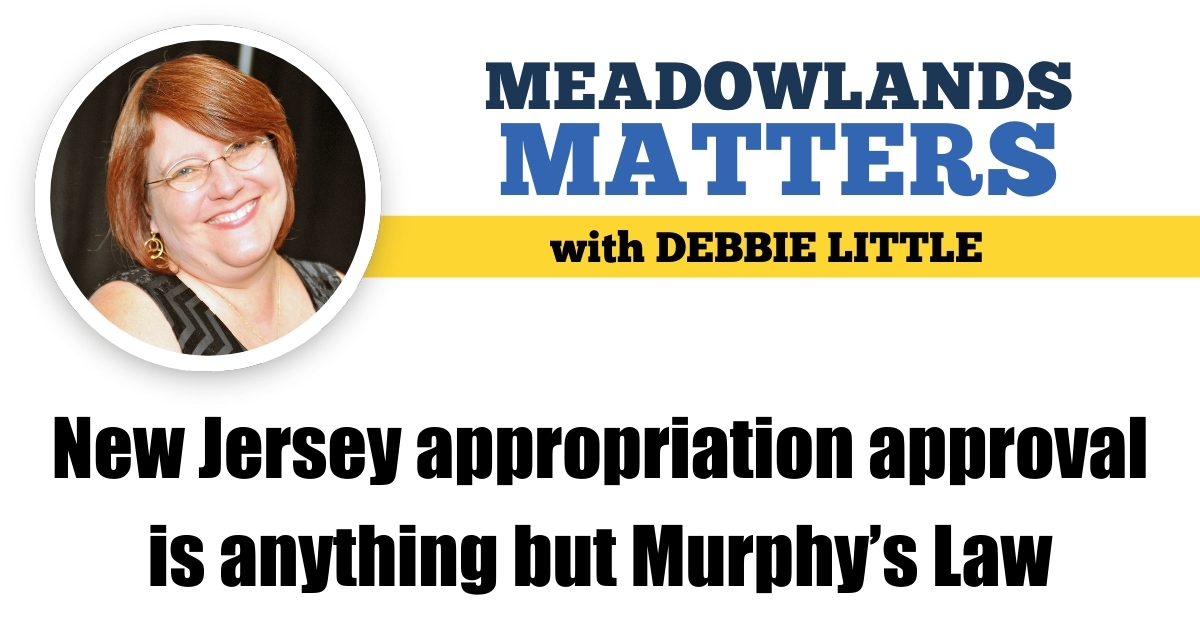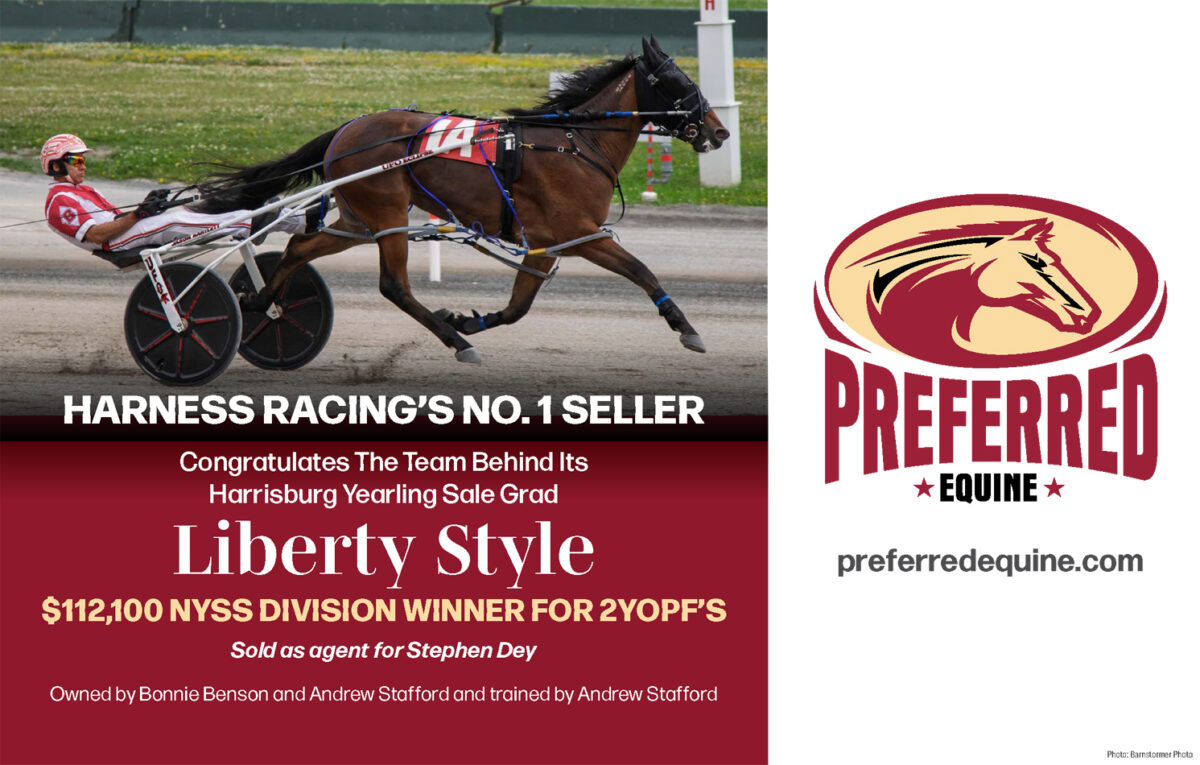New Jersey appropriation approval is anything but Murphy’s Law
by Debbie Little
On Thursday (Sept. 12), New Jersey Governor Phil Murphy signed Assembly Bill 2610, extending the annual purse appropriation through the state’s fiscal year in 2029.
The annual $20 million provided for in the bill is split evenly between thoroughbred and standardbred racing.
In a statement released upon signing the bill, Gov. Murphy said in part: “New Jersey’s horse racing industry is a key economic engine, supporting thousands of jobs and attracting tourists and fans from around the world. The funding promised by this legislation will allow New Jersey to continue to offer one of the most exciting horse racing experiences in the nation, while also providing a boost to an industry that is integral to our economy.
“While I am pleased to sign this bipartisan legislation, it is important to recognize that one legislature cannot bind future legislatures with respect to prospective appropriations… Given the critical importance of the horse racing industry to not only the State’s economy, but to farmland and open space preservation, I am signing this legislation to signal my desire for the State to continue to make this investment each year at the level directed in the bill. However, the amount of the investment made each year must be evaluated and ultimately determined by the State’s overall fiscal condition at that time. With these economic and legal realities in mind, I look forward to working with my partners in the Legislature to ensure that this key sector of the State’s economy is supported going forward in a fiscally responsible manner that satisfies our shared constitutional obligations to enact a single appropriations law governing overall State spending needs for a single fiscal year.”
Gov. Murphy has always been a staunch supporter of harness racing in the state of New Jersey and with his second term due to end in January of 2026, there could be concern about the future of the appropriation since as the Governor also said in his statement, “Consequently, the appropriations that this bill purports to require through State fiscal year 2029 are not binding and serve only as a strong expression of intent to provide funding in future fiscal years.”
What the Governor was referring to in his statement are clauses in place in the State’s constitution to protect it from going into debt, and therefore appropriations would not be made if they would put the State into the red financially.
Despite the fact that Gov. Murphy’s term is coming to an end, and there is no way to know if the next governor would be on the side of horse racing in New Jersey, breeder Mike Gulotta feels very good about the future of the appropriation.
“When the legislature wants to do something politically, and especially to the extent that they’ve stood behind the industry in the last two votes on this issue, the governor is going to pay attention to that,” Gulotta said. “It doesn’t mean that he can’t veto a piece of legislation or a part of a budget, but he did agree to do the five years.”
To Gulotta’s point, the legislation passed 76-0 in the Assembly and 40-0 in the Senate earlier this year.
“He has always been supportive of our industry. He came to The Meadowlands on Meadowlands Pace Night in 2021 and he articulated his supportfor continuing to help the industry.
“Now, your point about a subsequent governor is valid, but I still come back to the point of the legislature being so supportive and its leadership, including Craig Coughlin and Nick Scutari, being so supportive as evidenced by the fact that number one, they realize the economic impact of the industry on the state of New Jersey and the impact on open space so that’s not going to change radically.”
In addition to Gov. Murphy, Speaker of the Assembly Coughlin, Senate President Scutari, New Jersey State Senator Paul Sarlo and Assemblyman Erik Peterson, as well as many more, have all been very supportive of our industry.
Gulotta also mentioned that an economic impact study, put together by Econsult Solutions Inc. with data collected by the Standardbred Breeders and Owners Association of New Jersey (SBOA NJ), was done and showed that horse racing generated $75 million for the state.
“So [$75 million] obviously is in excess of [$20 million],” Gulotta said. “So, you approve purse authorization for $20 million and you get $75 million in taxes back. It’s a good deal for the state, not to mention all the other impacts that the purse appropriation had on the state. By the way, the breakdown of that $75 million was $41 million for standardbreds and $34 million thoroughbreds.”
Gulotta pointed out that the way the breeding business in New Jersey has grown over the last few years by attracting new stallions shows the legislators that the appropriation is being put to good use.
In recent years, New Jersey has been strong with stallions on its trotting side — Ecurie D Dk, Muscle Hill, Tactical Landing, and Walner — but the fact that a stallion of the caliber of Perfect Sting — whose first crop will sell this year and from all accounts look impressive — has now joined Lazarus N to bolster the pacing ranks helps the business tremendously.
Gulotta also said that other forms of alternate gaming could benefit the industry.
“We’ve been talking with the legislators about historic race wagering,” Gulotta said. “You know how wonderful the impact of historic race wagering has been on the industry in Kentucky. They went from $600 million of handle in 2016 to $8.2 billion of handle in 2023 with historic race wagering.
“If we got that or some other form of alternate gaming at the racetracks, the racetracks would be packed number one, and number two, we estimated it would generate over $300 million to the state of revenue without a penny of investment. It makes perfect sense. So, the purse appropriation is a bridge to a better future. And the legislature understands that, the governor understands that, and in the interim, it’s still a 75 to 20 deal.”
Of the $10 million designated for standardbred racing, the bill says that “60 per cent will be allocated to Meadowlands overnight purses; 16 per cent to Freehold overnight purses; 12 per cent to the New Jersey Sire Stakes purses; 6 per cent to purse bonuses for New Jersey sired horses; and 6 per cent for breeders awards purses.”
If Freehold does indeed close on Dec. 28, as was announced on Thursday (Sept. 19), it is unclear at this point what would be done with their 16 per cent.


















